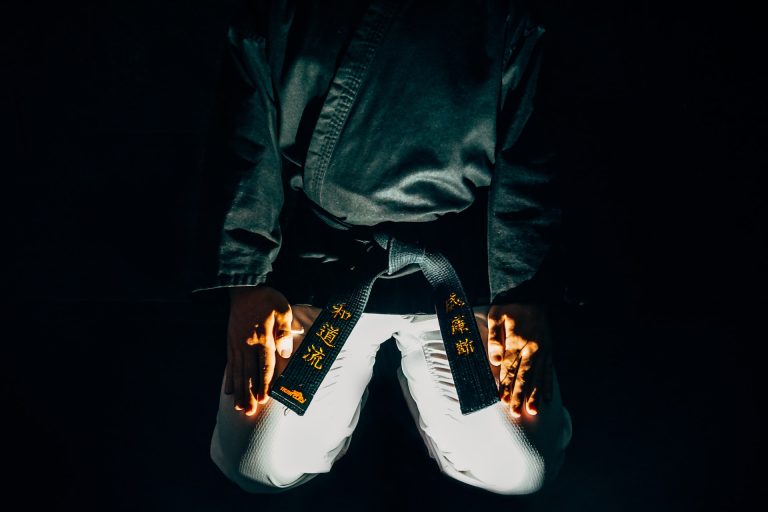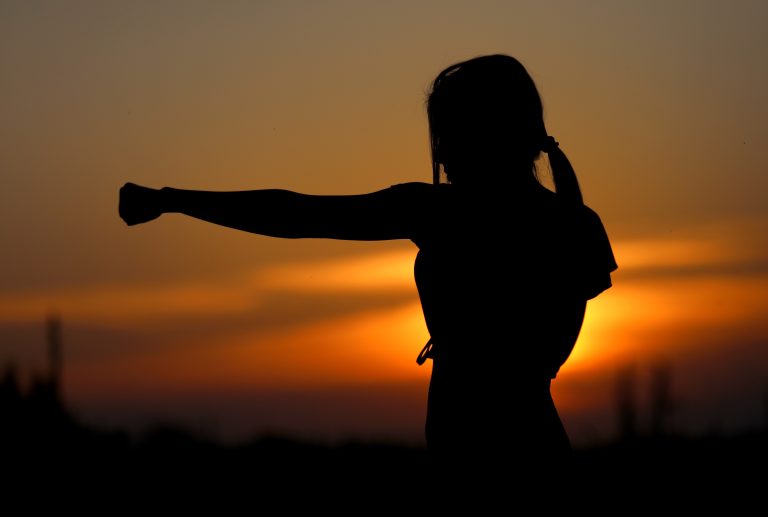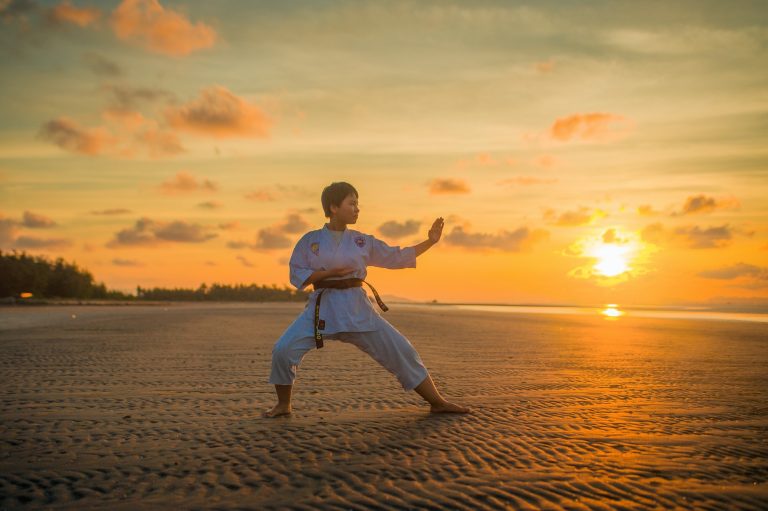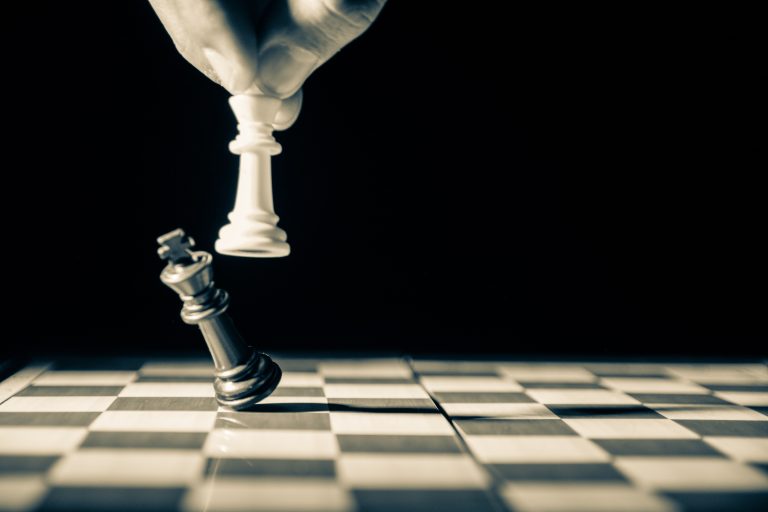What is the Word Karate Mean?
Karate is a martial art that originated on the Ryukyu Islands in Okinawa, Japan. It is a form of self-defense that is widely practiced all over the world. The word Karate is derived from two Japanese words: Kara, which means „empty,“ and Te, which means „hand.“ Putting these two words together, Karate means „empty hand“ or „open hand“ in English.
The meaning of the word Karate is often misunderstood. Some people believe that it means „fighting“ or „kicking and punching.“ However, the word Karate has a deeper meaning than that. It is not just about physical strength and power but also about mental and spiritual strength.
The Origins of Karate
The history of Karate can be traced back to the 18th century in Okinawa, Japan. Okinawa was a trading hub, and as a result, different martial arts and self-defense techniques were introduced to the island. Karate was born out of a combination of these different techniques, including Chinese martial arts.
Karate was initially taught in secret. The Okinawan people were not allowed to own weapons, so they had to find alternative ways to defend themselves. Karate was developed as a form of self-defense that did not require any weapons. Instead, the practitioner used their hands and feet to strike their opponents.
In the early 20th century, Karate was introduced to Japan. It was brought there by Gichin Funakoshi, who is widely regarded as the father of modern Karate. Funakoshi developed his own style of Karate, which he called Shotokan.
The Philosophy of Karate
Karate is not just about physical strength and power. It is also about mental and spiritual strength. The philosophy of Karate is based on a set of moral and ethical principles that guide the practice of the martial art.
One of the fundamental principles of Karate is that it is a non-violent form of self-defense. Practitioners of Karate are taught to use their martial art only in self-defense and as a last resort. They are also taught to avoid fights and conflicts whenever possible.
Another principle of Karate is that the practitioner should always strive for perfection. This means that they should always be working to improve their technique and their mental and spiritual strength.
Finally, Karate teaches respect, both for oneself and for others. Respect for oneself means taking care of one’s body and mind, while respect for others means treating everyone with kindness and compassion.
The Benefits of Practicing Karate
The benefits of practicing Karate are many. Here are just a few:
1. Physical Fitness: Practicing Karate is a great way to stay physically fit. It is a full-body workout that strengthens muscles, improves flexibility, and increases cardiovascular health.
2. Improved Focus: Karate requires a lot of mental focus and concentration. Practicing Karate can help improve these skills, which can be beneficial in all areas of life.
3. Stress Relief: Karate can be a great way to relieve stress. The physical activity of practicing Karate can help reduce tension in the body, while the mental focus required can help clear the mind.
4. Self-Defense: Learning Karate can give a person the skills and confidence needed to defend themselves in a dangerous situation.
The Meaning of Karate
When someone hears the word Karate, what is the first thing that comes to mind? Perhaps it is the iconic martial arts uniforms, the belts, or the action-packed scenes from movies. However, at the core of Karate is a rich history and cultural significance. One of the most frequently asked questions about Karate is, „What does the word Karate mean?“
The Origins of the Word Karate
Karate originates from the Ryukyu Islands, now known as Okinawa, which is located in Southern Japan. The term Karate is derived from the Japanese word „kara“ which means „empty“ and „te“ which means „hand.“ Thus, Karate is often translated as „empty hand.“
The meaning behind the word „empty hand“ has deep cultural significance. Karate was developed as a form of self-defense during a time when weapons were banned in Okinawa. Therefore, practitioners had to rely solely on their unarmed combat skills to protect themselves. This explains why Karate focuses on using striking, kicking, and punching techniques rather than weapons.
Is Karate Just About Fighting?
While Karate does involve techniques and skills aimed at self-defense, it is much more than just fighting. Karate is a martial art that emphasizes physical and mental development through discipline, focus, and perseverance. Practitioners of Karate aim to cultivate inner strength, self-confidence, and respect for others.
In fact, many Karate dojos (training halls) incorporate meditation and mindfulness practices into their training programs. These practices aim to help students develop a calm and centered mind, which is essential for effective self-defense as well as personal growth.
What Are The Different Styles of Karate?
Over time, various styles of Karate have emerged, each with its unique approach and emphasis. Some of the most popular styles include Shotokan, Goju-Ryu, Shito-Ryu, and Wado-Ryu.
Shotokan Karate is perhaps the most well-known style of Karate. It focuses on strengthening the body and developing a strong stance while using fast, powerful strikes. In contrast, Goju-Ryu Karate emphasizes breathing techniques and circular movements while incorporating grappling and throwing techniques.
Shito-Ryu Karate combines elements of both Shotokan and Goju-Ryu, emphasizing agility and flexibility. Lastly, Wado-Ryu combines Karate techniques with aikido, focusing on blending and redirecting an attacker’s energy.
How Do I Get Started With Karate?
If you are interested in practicing Karate, the first step is to find a dojo or gym in your area that offers Karate classes. Most Karate schools offer beginner classes, and you do not need any prior experience to start. However, before you begin, it is important to have a conversation with the instructors about any limitations or existing health conditions you may have.
It is also important to note that Karate is a physically demanding activity, and beginners may experience some muscle soreness and fatigue at first. However, with patience and dedication, you will see results and experience the many benefits of practicing Karate, both physically and mentally.
What Does the Word Karate Mean?
Introduction
Karate is a martial art that originated on the island of Okinawa in Japan. It is famous for its fierce techniques and high levels of discipline. However, many people are not aware of what ‘karate’ actually means. In this blog post, we will explore the meaning of the word karate and its origins.
Etymology of Karate
The word “karate” comes from the Japanese characters “kara” (empty) and “te” (hand). The martial art was originally called “Okinawa-te” which means “Okinawa hand”. It wasn’t until the early 20th century that the name “karate” was adopted.
The word “empty” in the context of karate means a way of defense that is achieved without weapons. Karate emphasizes striking techniques and deflection movements. The goal is to use those techniques to neutralize an attacker’s offense.
History of Karate
Karate has a history that dates back over a thousand years. It was developed in Okinawa, an island in Japan. Okinawa was a center of trade and commerce, and its rulers had to deal with frequent invasions. This led to the development of unique fighting techniques that would help the people defend themselves.
Karate was originally taught in secret, with techniques passed down from teacher to student. It wasn’t until the turn of the 20th century that karate was introduced to the rest of Japan and ultimately the world.
Types of Karate
There are four main types of karate:
1. Shotokan – characterized by powerful, linear techniques and deep stances.
2. Goju-ryu – emphasizes breathing techniques and circular movements.
3. Shito-ryu – a blend of Shorin-ryu and Goju-ryu.
4. Wado-ryu – emphasizes joint locks and throws.
Benefits of Practicing Karate
Karate has many benefits, including physical and mental benefits. Practicing karate regularly can:
– Increase cardiovascular health and strength
– Improve balance and coordination
– Develop discipline and focus
– Enhance self-defense skills
– Reduce stress and anxiety
Conclusion
Karate is a martial art that has a rich history and deep cultural significance. Now that you know the meaning of the word karate, you can understand more fully the principles and techniques behind this powerful fighting style. Whether you are interested in learning karate for self-defense or for personal development, there are many benefits to practicing this ancient art.
Inhaltsverzeichnis






